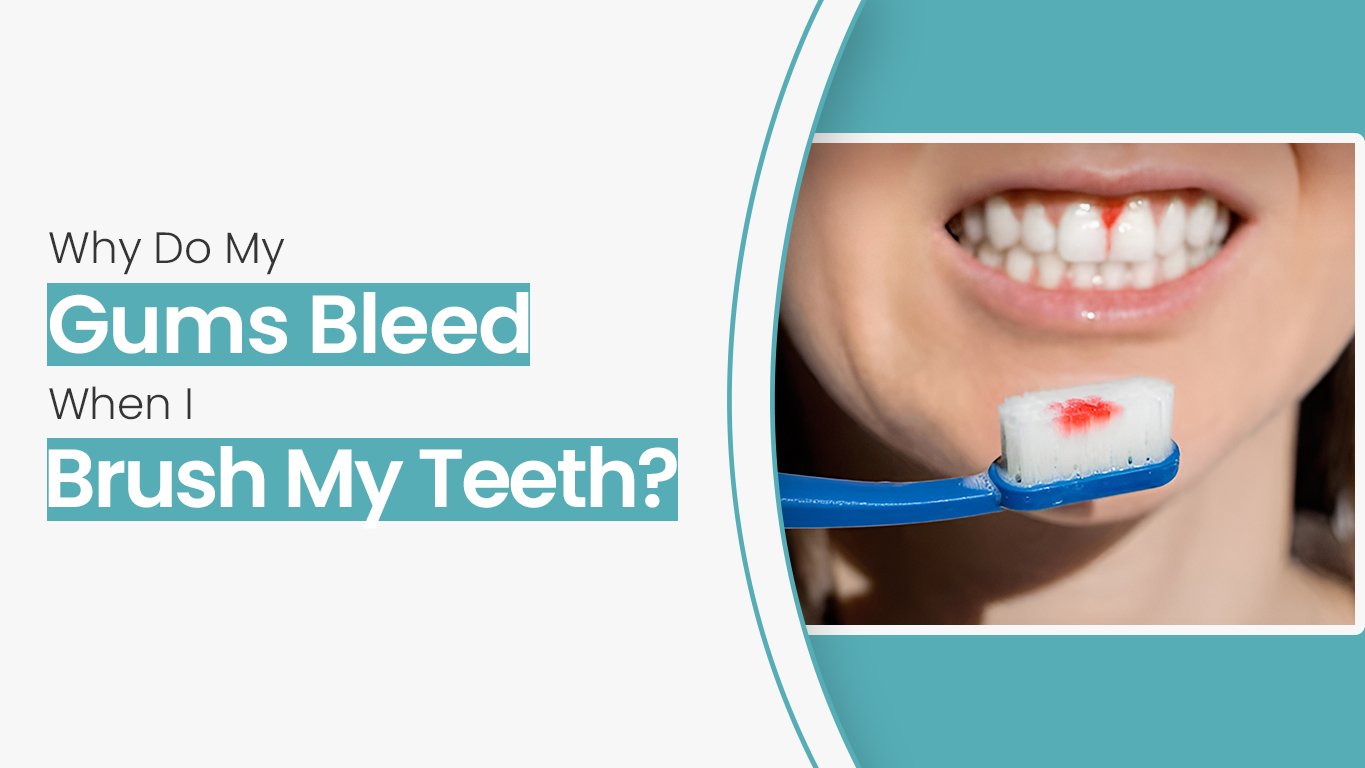What causes bleeding in my gums when I brush my teeth?

It can be alarming to see blood in the sink while brushing your teeth. Bleeding gums is a common problem that affects a majority of people in Australia. What causes bleeding gums, and how can you make it stop?
Bleeding gums are usually a sign of gum disease. It causes irritation and inflammation in your gums. It is vital to take the necessary measures and treat gum disease before it leads to a more serious problem that can result in you losing your teeth. Read on to find out more about what causes bleeding gums and how to get your symptoms under control.
What Causes Bleeding Gums?
There are a few common causes of bleeding gums:
-
Plaque Build-up
When plaque, a sticky film of bacteria, accumulates on your teeth, it can irritate and inflame your gums. If plaque isn’t removed regularly by brushing and flossing, it hardens into tartar that can only be removed professionally. Both plaque and tartar accumulation can make your gums prone to bleeding.
-
Gingivitis
Gingivitis is the most common cause of bleeding gums — mild gum inflammation caused by plaque build-up. When plaque sits on your teeth along the gum line, it irritates the gums and can cause them to become inflamed and bleed when disturbed. The earlier stage of gingivitis is reversible with improved oral care.
-
Vitamin C Deficiency
Not getting enough vitamin C from your diet can cause your gums to weaken and bleed. Vitamin C is essential for healthy gums and other oral tissues.
-
Blood Thinners
Medications like aspirin, clopidogrel, and warfarin that prevent blood clotting can also make your gums bleed more easily. Let your dentist know if you take any blood thinners.
-
Stress
Chronic stress affects your whole body, including your gum health. It may make you more susceptible to gingivitis and bleeding.
-
Pregnancy
Hormone fluctuations during pregnancy can increase inflammation and bleeding in your gums. Practising good oral hygiene is especially important now.
-
Smoking
Chemicals in tobacco smoke can irritate your gums. Smoking is a major risk factor for gum disease.
-
Genetics
Unfortunately, some people are just more prone to gum issues due to hereditary factors. Brushing and flossing diligently can help overcome a genetic predisposition.
How to Stop Bleeding Gums?
While your gums shouldn’t normally bleed, taking steps to improve your oral health can get the bleeding under control quickly:
-
Brush gently
Use a soft-bristled toothbrush, and be gentle as you brush near your gums. Don’t scrub hard, which can tear delicate gum tissue.
-
Floss daily
Flossing removes plaque and bacteria from between teeth that your toothbrush can’t reach. Floss gently down without snapping it between tight teeth.
-
Rinse with antiseptic mouthwash.
Swishing with an antiseptic, alcohol-free mouthwash can help kill bacteria and reduce gum inflammation.
-
Get a professional cleaning
See your dentist for a thorough professional cleaning every 6 months to prevent plaque and tartar build-up.
-
Take vitamin C
Up your vitamin C intake from citrus fruits, broccoli, tomatoes, and strawberries to strengthen your gum tissue or ask your doctor about a supplement.
-
Manage stress
Try relaxation techniques, exercise, or talk to a counsellor to control chronic stress that’s affecting your oral and overall health.
-
Quit smoking
Seek help from your doctor to stop smoking, which severely impacts gum health and healing.
-
See your dentist
If over-the-counter methods don’t help within a few weeks, seek professional treatment. You may need prescription antimicrobial mouthwash or antibiotics to treat infection.
Conclusion
Bleeding gums are trying to tell you something is wrong. Don’t ignore this warning sign. Take steps to clean the area and reduce inflammation gently. See your dentist if bleeding persists despite your best efforts. Following professional treatment, you can get your gums back to a healthy pink colour and texture.
If you experience bleeding, sore, or inflamed gums — schedule an exam with our knowledgeable dentists at Springvale Dental Clinic. Call us today to discuss your symptoms and get on track with healthier gums and a smile.



